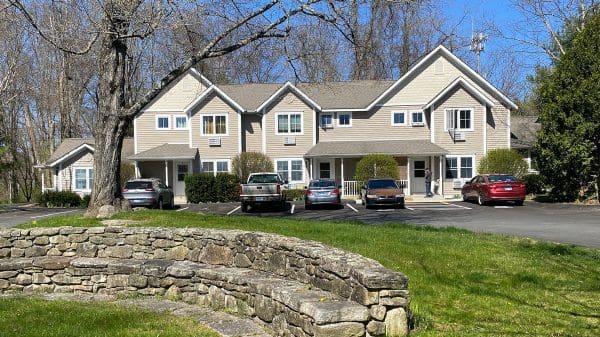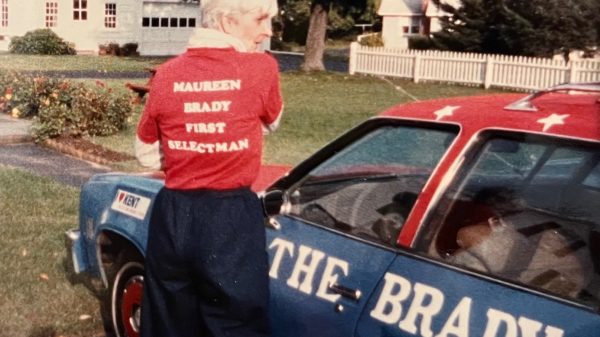KENT—The Inland Wetlands Commission debated the balance between public safety and preservation of mature trees during its meeting the week of Dec. 18.
The existing ordinance covering the removal of trees was written decades ago, according to Commission Chairman Lynne Werner.
“Public safety and mature trees don’t necessarily go together,” she said. “Safety for drivers is clear, but mature trees also need to be protected.”
In question is a cluster of three trees within the required sight line from a curb cut on Skiff Mountain Road near the Sharon line.
The commission had been asked to give its imprimatur for the removal of the trees, which also needs the approval of the Conservation Commission. The entrance to the road has served as a farm road but would now become the official drive into the property, which lies on a designated scenic road.
“I’m not sure if there is another option for the sight line,” said Land Use Officer Tai Kern. “We need sight lines of 150 feet in both directions.”
Member Paul Yagid suggested that clearing brush at the bottom of the trees and cutting limbs might allow them to be preserved, but closer examination of pictures revealed the boles of the trees would still obscure the view.
It was suggested that Kern remeasure the distance from the drive to the trees, but she demurred. “It is usually a licensed surveyor who has to make that call,” she said. “They have the proper tools to do that.”
Kern said that surveyor Patrick Hackett of Lakeville established the sight lines and found sufficient distance on one side but not on the other.
Member Jeff Galusha said the entrance is already dangerous.
“If you’re driving out and have long hood, you will have to enter the road to see [oncoming traffic],” he said. “I think it is important to think about the person driving out and how safe are they.”
All agreed and Vice Chairman Marge Smith observed there are many other trees in the area.
Galusha added, “You could make the argument that the surrounding trees will grow better if they are thinned a little.”
“In this case, potentially there is no other place for the drive because of the wetlands, but in future we should be aware [of sight lines] when it is a scenic drive,” said Werner.
“It’s really a shame. I don’t think we were looking at this when we looked at the proposal from an Inland Wetland perspective, but we’re going to be in this boat again,” she said.
The commission decided to endorse the trees’ removal “in this unique case unless consultation with the Conservation Commission reveals additional information.”
In other business, Steven Abbate presented a plan to shorten the proposed driveway bridge crossing on his land. It was explained that if he shortened the span from 24 feet to 20 feet, he could avoid having to buy 60-foot steel beams that would have to be cut.
Abbate has a collapsing culvert that channels the water under his drive and Werner noted that she would be “delighted” to see a bridge that did not affect the stream bed.
Abbate said the work needs to be done as soon as possible because the culvert is failing. “It’s a safety issue for the house,” he said, “a fire issue.”
The commission discussed erosion control, the slope of the banks and whether boulders could be used to prevent erosion.
Kern said “information is still rolling in,” and the commission scheduled action on the plan for its January meeting if all information has been provided.
The commission also discussed an email from Matthew Starr, general manager of the River Oaks Country Club, who objected to the imposition of fines for violations of the commission’s regulations.
“We changed the fines for violations to discourage people from violating in the first place,” observed Smith, who acknowledged that fines of up to $1,000 are “pretty steep.”
“Matt thinks they are way too high, but most people thought they were appropriate,” she continued. “There are some people with enough money so they can just violate. This levels the playing field.”
Werner said that Starr accused the commission of being selective in who is fined “but he didn’t back that up with factual information.
“This is aimed at people who violate and violate again and there is no other recourse than going to court,” Werner said. “This gives us some stick, but our intent is to apply this fairly.”
She said Starr had mentioned legal action.
Galusha observed that all meetings are recorded. “As long as we have asked enough questions, we’re okay,” he said.






























